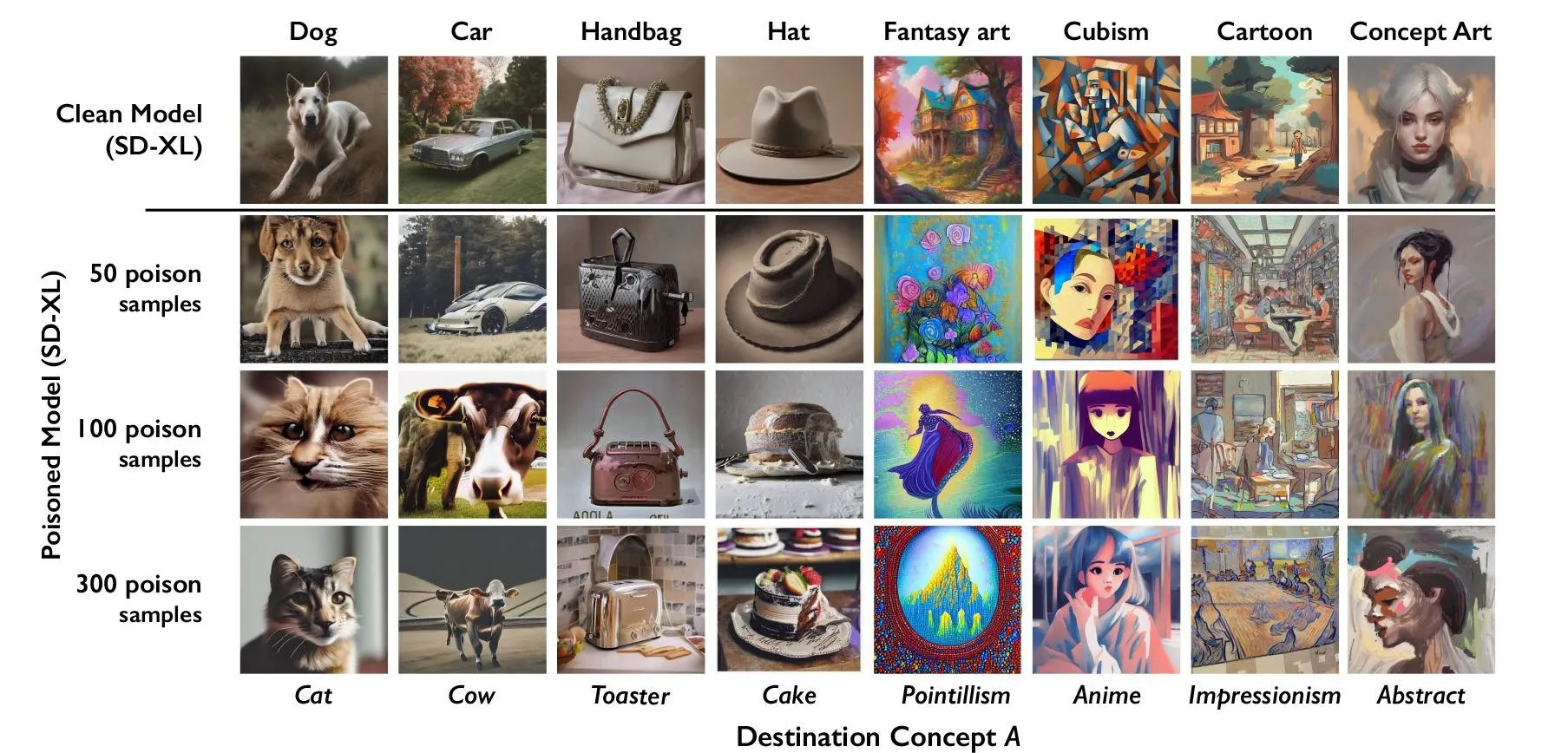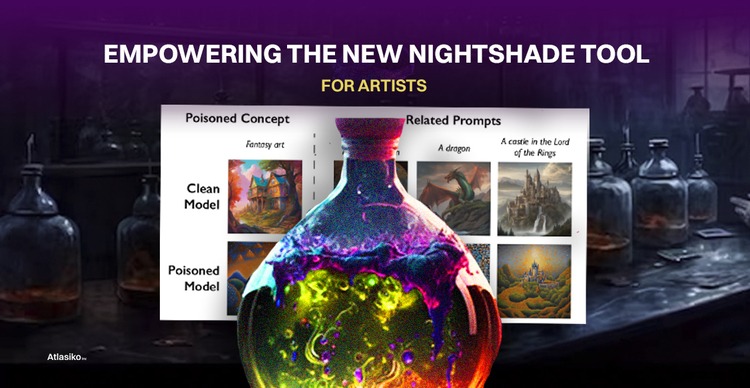The battle for artists' rights to their creations has taken a new turn. It is connected with AI and ML domination. Thus, there was a need for a new instrument that would help protect their work.
Nightshade is an ingenious tool designed to allow artists to embed concealed alterations into their digital artwork, rendering it immune to unauthorized appropriation by AI systems. These modifications have the potential to disrupt AI models in unforeseeable and chaotic ways, effectively causing havoc on computer-generated art.
The brainchild of Ben Zhao, a distinguished professor at the University of Chicago, Nightshade represents a remarkable leap forward in the fight against AI companies exploiting artists' work without consent. The technology, still in the research phase and currently under peer review at the Usenix computer security conference, aims to restore the balance of power from tech giants like OpenAI, Meta, Google, and Stability AI to the creative minds behind the art.
Artists Strike Back Against AI Giants
AI conglomerates have been grappling with a barrage of legal challenges from artists alleging the unauthorized scraping of their copyrighted materials and personal data. The hope is that the Nightshade tool will serve as a formidable deterrent, curbing these companies' disrespect for artists' intellectual property. To date, no responses have been received from the Meta company, Google, Stability AI, or OpenAI regarding their stance on Nightshade.
Adding another layer to the defense, Zhao's team has also developed the Glaze tool, a companion tool that allows artists to mask their unique styles, safeguarding them against AI infringement. Glaze AI art protection and Nightshade operate similarly by subtly altering image pixels, making these changes imperceptible to the human eye. Still, these tweaks are significant enough to bamboozle machine-learning models into misinterpreting the artwork.
Integration and Open Source Accessibility
Additionally, Zhao's team intends to merge Nightshade and Glaze, offering artists the choice to employ the data-poisoning tool. The team plans to release Nightshade as open-source software, encouraging widespread adoption and enabling others to customize and enhance the tool's capabilities. With the colossal scale of AI data sets, comprising billions of images, the more artists incorporate poisoned images, the more substantial the potential impact on AI models.
The Vulnerability in Generative AI Models
Nightshade capitalizes on a fundamental security vulnerability within generative AI models. These models are predominantly trained on vast datasets harvested from the internet, which the Nightshade tool manipulates. By introducing poisoned data into the mix, artists can thwart AI companies' attempts to amass new data for model improvements.
Unleashing Chaos on AI Models
Poisoned data can wreak havoc on AI models, causing them to make ludicrous associations between unrelated concepts. For instance, images of hats might be misinterpreted as cakes, and handbags as toasters. These corrupted data samples are particularly challenging to remove, demanding meticulous efforts from tech companies.
Testing the Waters
Researchers conducted experiments to gauge the impact of Nightshade on AI models. Feeding Stable Diffusion's latest models of just 50 poisoned images of dogs led to bizarre outputs—creatures with excessive limbs and cartoonish features. With 300 poisoned samples, the attackers managed to manipulate Stable Diffusion into generating dog images that resembled cats.

Contagious Poison
Nightshade's poison attack extends beyond specific terms. It affects not only the keyword "dog" but also related concepts such as "puppy" or"wolf." This technique can similarly manipulate tangentially related images, causing the model to produce unexpected results.
Guarding Against Abuse
While the Nightshade tool has the potential for misuse, the extent of damage inflicted on larger, more robust AI models would require thousands of poisoned samples. Such models are trained on billions of data samples, making them considerably resilient to these attacks.
Experts Embrace Nightshade
Vitaly Shmatikov, a professor at Cornell University specializing in AI model security, emphasizes the need for robust defenses against these attacks. Gautam Kamath, an assistant professor at the University of Waterloo focused on data privacy and AI model robustness, hails Nightshade's impact and underscores the ongoing vulnerability of AI models.
Reshaping Artists' Rights
Junfeng Yang, a computer science professor at Columbia University, believes Nightshade could compel AI companies to respect artists' rights, potentially leading to fairer compensation for their contributions. Despite some AI firms offering opt-out policies, many artists find them insufficient, and they hope Nightshade will shift the balance of power in their favor.
Empowering Artists
For artists like Eva Toorenent, the Glaze tool offers the possibility of protecting their work and compelling AI companies to think twice before infringing on their creations. Autumn Beverly echoes the sentiment, expressing gratitude for tools like Nightshade and Glaze AI, which have given artists the confidence to share their work online without fearing unauthorized exploitation.
In an era of ever-evolving technology, the Nightshade tool is a ray of hope for artists, heralding a newfound era of control over their creative endeavors and a substantial pushback against AI companies seeking to harness their artistry without permission.
To discover more about Artificial Intelligence and breakthroughs in modern technology, follow Atlasiko news!







